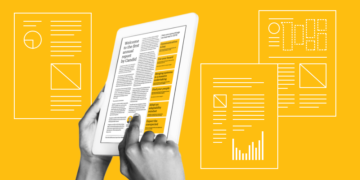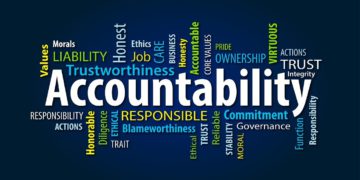What happens when leaders suffer major setbacks?
Some get angry and blame others; some get depressed and isolate themselves; a few may even get physically ill.
But others ride it out, keep their composure, and—if it’s a new program or initiative— stay the course. If it’s a problem they precipitated, they try to learn from it.
We say they are resilient, a competency widely recognized as critical for leaders— especially global leaders due to the rapidly changing, complex nature of the challenges they face.
Researchers and leadership experts have varying descriptions of resilience. I see it as a combination of two things: your ability to
- Stick with things you start, even when the signs aren’t promising.
- Not get knocked badly off track when you do face setbacks, whether it’s from something you initiated or not.
You’ll notice it’s not really about self-control, but it does feed composure—so that you’re more likely to be that calm voice from the cockpit when the plane encounters turbulence.
There certainly are times when composure is key for leaders, when you have to realize you’re losing it and need to step back and take a deep breath.
But what I wanted to focus on here is what to do when something you’ve initiated or been given responsibility for isn’t going well—or may have completely blown up in your face. And, then, what you can do to develop your resilience ongoing.
Tips for getting through a crisis
These are some immediate steps you can take:
If it’s an initiative you launched that is beginning to bog down, try re-visiting your rationale for embarking on it. To reinforce your confidence that you’re basically on the right track, do some more research and talk with others who may have sound input. Of course if none of this supports your chosen course of action, you need to make adjustments.
If you didn’t already have one, develop a “plan B”. Lay out what you’ll do if the initiative doesn’t work. And communicate it. Your reports will want to know.
Consider the worst case scenario. If things are completely falling apart, remind yourself that you’re not going to be annihilated or sent to Siberia. Bad stuff happens—and every executive has scars.
There’s one more thing that every coach, mentor, or savvy exec will tell you, and that’s to look for sources of support. Not necessarily for guidance, although you certainly may get valuable advice, but simply for someone to talk to.
And this takes us into a more fundamental level of strengthening your resilience.
Ways to develop resilience
Turning to sources of support When we think of resilience, we may think of “self-reliance” and imagine a loner type, someone who can tough it out by themselves. But keeping to yourself when things go wrong is rarely the best option.
One of the benefits of turning to others is obvious. You get emotional support from your friends, colleagues, or other people you trust. And you may even get suggestions that really help.
But there are other reasons to reach out. Talking about what you’re going through, including your doubts, tends to take away their mystique. The horrendous and unthinkable becomes simply “a bad thing”. And no more than that. It’s no longer the monster in the closet. Minus the attendant anxiety, It becomes something you can address with clarity—even humor.
So it’s more than having someone pat you on the back and say, “It’s okay; everything will be all right”. You’ve laid the whole situation on the table, where it looks more ordinary.
A third benefit is that there IS something positive about just having another person know what you’re going through, even if they don’t have an ounce of advice to offer. You feel like you have a partner now—an accomplice. It helps you renew your energy and move forward with more confidence.
Having a growth mindset When things blow up in your face and it’s apparently your fault, it’s often suggested that you adopt a “growth mindset”. This means recognizing that your learning is not fixed—that you’re not permanently boxed in by your current capabilities.
Of course maintaining this mindset in the face of a major setback is easier said than done. When you get really knocked off your pins, you may not be very inclined to remember that you can learn from your mistakes.
I’ve also found in coaching engagements that, even when leaders DO have a growth mindset about most things, they can still harbor a semi-conscious assumption (such as: ”I’m just no good at X”) that undermines their confidence. They may even be fully aware of it but still feel it’s an intractable part of their make-up—a given.
This needs to be brought to light and inspected, which can happen if you talk candidly with a coach, mentor, colleague, or friend. In the end you may decide that it’s a competency you need to have a team member provide. Or, if it’s the way you interact with others, for example, realize that it CAN change. Just dropping the assumption that it will never change is more than half the battle. Now you can get to work on ways to address it.
Returning to first principles or ultimate goals When things go wrong, you may begin to doubt your whole approach to work life and even your personal life. Your trusted rudder seems to have stopped working. You’re ambivalent. And of course it’s the worst time for this to happen.
It’s good then to go back to your first principles and ultimate goals—the values you embrace and the reasons why you do what you do. It’s best to think this out or write it out or talk it out with at least one other person, openly and fully. Unless you happen to have arrived at some pivotal, transformative moment in your life, what you’re all about doesn’t have to change. You just need to get back in touch with it.
The interplay of core competencies
Resilience is closely connected to three other commonly identified “core” competencies for leaders: self-awareness, tolerance of ambiguity, and emotional intelligence.
If you’re strong in those three areas, odds are you’re also resilient. But, if you find that, yes, you seem to be reasonably capable in those areas, and, even so, you still lack staying power or get too easily floored by setbacks, then working to further strengthen those three competencies should also help you be more resilient.








































